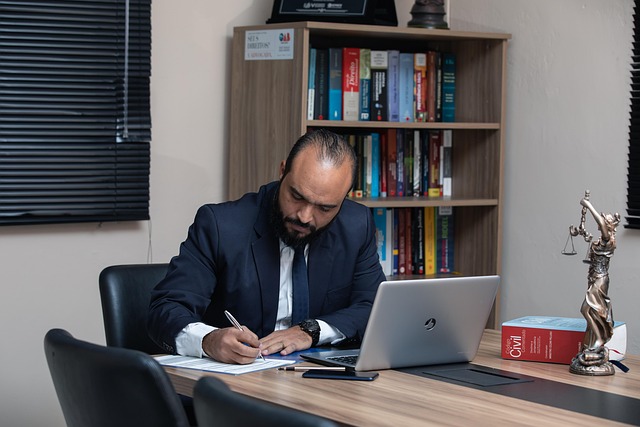Homeownership is a powerful tool for tourists planning their financial future, offering both security and investment potential in an unpredictable market. It provides protection against legal issues like DUI cases and shields assets from challenges. Tourists should consult local legal experts for guidance on international real estate laws and tenant screening to ensure a secure ownership experience, while also investing in reliable DUI Defense for Tourists services and comprehensive insurance coverage.
Home ownership isn’t just about shelter; it’s a powerful asset protection strategy. In today’s economic landscape, understanding how owning property can safeguard your financial future is crucial, especially for tourists navigating unfamiliar legal territories. This article explores the benefits of homeownership for financial security and delves into specific strategies tailored for tourists to protect their valuable investment, even in the face of challenges like DUI (Drunken Driving) defense. By the end, you’ll grasp why home ownership can be a robust shield against financial risks.
- Understanding Home Ownership as an Asset Protection Strategy
- Benefits of Owning Property for Financial Security
- Legal Considerations: Protecting Your Investment as a Tourist
- Strategies for Tourists to Safeguard Their Home Ownership Asset
Understanding Home Ownership as an Asset Protection Strategy

Home ownership is often viewed as a significant asset protection strategy, providing individuals with a secure place to live and a valuable investment. In today’s dynamic economic landscape, where market fluctuations can impact various investment vehicles, real estate stands out as a relatively stable option. Owning property offers several advantages in terms of financial security and long-term wealth accumulation.
For tourists considering their financial future or those facing challenges like DUI (Driving Under the Influence) cases that may affect their assets, understanding the protective value of home ownership is crucial. While DUI defenses for tourists can be complex, establishing a stable residence through property ownership can serve as a buffer against potential legal and financial complexities. This strategy allows individuals to protect their assets, ensuring they have a solid foundation should unforeseen circumstances arise.
Benefits of Owning Property for Financial Security

Owning property is a significant step towards financial security and stability. It offers a range of benefits that can help individuals and families build wealth over time. One of the most notable advantages is the potential for long-term asset growth. Real estate values often appreciate, meaning your property can increase in value as you pay off your mortgage, providing a substantial asset that can be passed down to future generations.
Additionally, homeownership provides a sense of security and control over your financial future. It shields against rising rental costs by eliminating the need to renew leases or face evictions. Moreover, it offers tax advantages, such as deductions for mortgage interest and property taxes, which can significantly reduce an owner’s living expenses compared to renters. This stability is particularly beneficial for those who are not native to a region, like tourists visiting for an extended period, ensuring they have a secure place to call home without the worries associated with short-term rentals or frequent moves.
Legal Considerations: Protecting Your Investment as a Tourist

When considering home ownership, tourists often have unique legal considerations to keep in mind. As a non-resident investor, protecting your asset involves understanding local laws and regulations, especially regarding property rights and potential liabilities. One critical aspect is being aware of your rights and responsibilities as a homeowner, which can vary significantly from your home country. For instance, tourists investing in real estate may face specific challenges related to DUI (Driving Under the Influence) laws, as these strict regulations aim to protect public safety but can also pose risks for property owners.
A DUI defense for tourists is an essential consideration as it directly impacts your ability to safeguard your investment. Local authorities may have stringent penalties for DUI offenses, which could lead to legal complications and financial burdens. Tourists should be proactive by familiarizing themselves with the region’s laws, consulting legal experts who specialize in international real estate, and ensuring they understand their rights and obligations. Taking these steps is vital to protect your asset and ensure a smooth ownership experience.
Strategies for Tourists to Safeguard Their Home Ownership Asset

For tourists looking to safeguard their home ownership asset, proactive strategies are key. First, understanding local laws regarding property ownership and rental is essential; many areas have specific regulations for short-term rentals that must be adhered to. Next, ensuring robust tenant screening processes can help prevent problematic situations. This includes verifying income, checking references, and performing background checks to minimize the risk of damage or non-payment.
Additionally, tourists should invest in a reliable DUI Defense for Tourists service to protect themselves from potential legal issues that could impact their asset. Maintaining comprehensive insurance coverage tailored for rental properties is another strategic move. This protection extends beyond general home insurance, addressing specific risks associated with short-term rentals, such as liability for guest injuries or property damage. Regular maintenance and inspections also play a crucial role in preserving the asset’s value; timely repairs and well-documented maintenance records can prevent small issues from escalating into costly repairs.
Home ownership offers significant advantages as an asset protection strategy, especially for tourists. By understanding the legal considerations and implementing effective strategies, individuals can safeguard their investments. While challenges like a DUI (Drunk Driving Under Influence) defense may arise, proactive measures can ensure the preservation of property rights. Tourists should be aware of local regulations and consider consultation with legal experts to navigate these complexities, ultimately protecting their valuable asset of home ownership.






